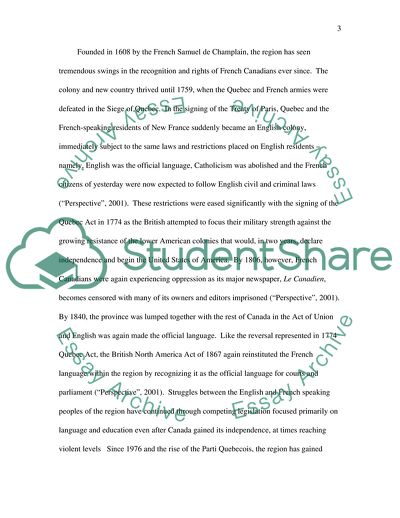Cite this document
(French in Quebec Essay Example | Topics and Well Written Essays - 1750 words, n.d.)
French in Quebec Essay Example | Topics and Well Written Essays - 1750 words. https://studentshare.org/english/1708390-french-in-quebec
French in Quebec Essay Example | Topics and Well Written Essays - 1750 words. https://studentshare.org/english/1708390-french-in-quebec
(French in Quebec Essay Example | Topics and Well Written Essays - 1750 Words)
French in Quebec Essay Example | Topics and Well Written Essays - 1750 Words. https://studentshare.org/english/1708390-french-in-quebec.
French in Quebec Essay Example | Topics and Well Written Essays - 1750 Words. https://studentshare.org/english/1708390-french-in-quebec.
“French in Quebec Essay Example | Topics and Well Written Essays - 1750 Words”. https://studentshare.org/english/1708390-french-in-quebec.


